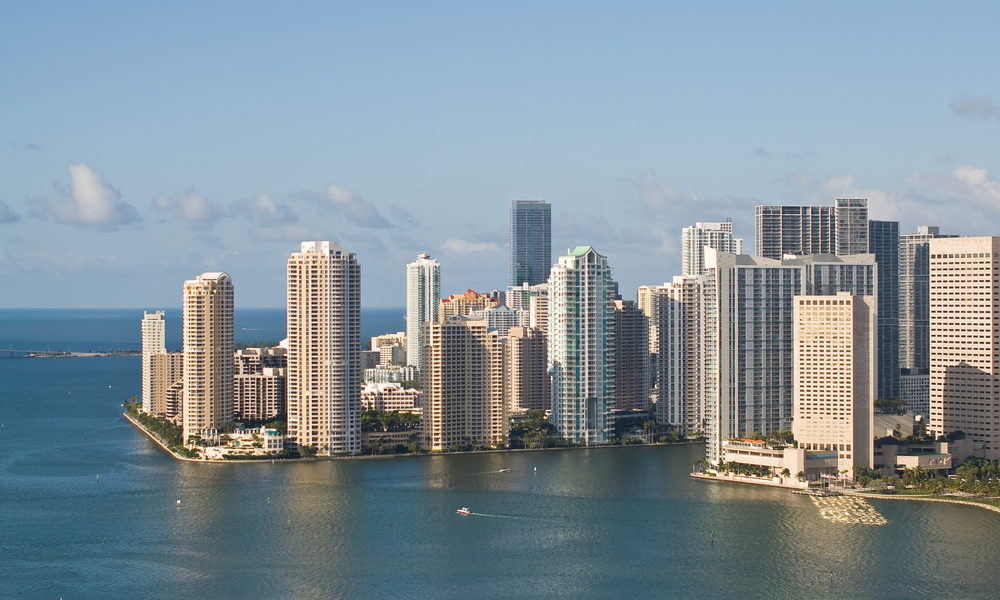Editor’s Note: South Florida real estate law attorney Robert Elias talks about all aspects of the real estate market in Miami and its metropolitan areas.

I was asked to comment on my expectations for the local real estate markets in 2021. Apart from the skyrocketing worldwide popularity of Miami, Covid-19 and the after-effects will continue to impact the local real estate markets in a substantial way. Current/future tax policy, corporate migration to South Florida, and the continuation of expected low interest rates will also continue to play a role. My thoughts on the outlook for various local real estate sectors is as follows:
Luxury Single-Family Homes: The outlook for the luxury single-family home market is outstanding in all price ranges. Primary drivers include Covid concerns and high net worth New Yorkers and other northeasterners relocating to South Florida to enjoy better climate and quality of life. Corporate relocations from NY have also benefited the local luxury market. While there are many cash transactions, continued low interest rates are providing a significant boost. As we work not only with several high profile athletes but also with many of the leading realtors/brokerage firms in South Florida, we found it interesting that several closings involved record transactions in the middle of the pandemic. Apart from international buyers, and in addition to New Yorkers, we see substantial buyers also coming from California.
Condominium: Condos on the other hand are not performing as well as the single-family housing market. Realtors report buyer concerns over elevator use and other shared facility uses in highly dense condominium buildings. High inventories, high prices/maintenance fees, and diminished travel/economic conditions in Central and South American economies have also impacted the market as does the local trend of movement from urban to suburban. Market confidence should be restored if the vaccine rollout and efficacy are successful as expected and condos should benefit. We all recall that the prospects for air travel following 9/11 was bleak but with enhanced security measures implemented, air travel was not only restored but was at record levels just a few years later.
Multifamily/Apartments: Many renters have suffered layoffs, salary reductions and other adverse economic impacts of the pandemic. Additional federal stimulus funds are currently being contemplated in Washington. That said, prior to Covid, the loss of mortgage interest deduction coupled with the preference by millennials for renting has driven the rental sector. Rental increases are not likely in the current environment. Fortunately, delinquencies are not as high as originally forecast. This sector should remain solid/stable.
Hospitality: The hotel/resort sector should see relatively rapid improvement in the second half of 2021 if Covid wanes as there will be pent up demand to visit our beaches and enjoy our nightlife. Business travel may take slightly longer than expected to recover but it will happen. From our representation of many local banks and other lending institutions, it is widely known that hospitality loan payments have been deferred. My expectation is that lenders will continue to work with hotel owners/operators and the market will stabilize in lieu of foreclosures. Though several marquee resort properties are planned, significant new construction in the hospitality sector is unlikely for the foreseeable future.
Office: Covid has forced many industries to reconsider office space needs with many seeing the benefits of remote working. While some industries can operate effectively in that regard, many cannot. As the Covid dissipates, my expectation is that the workforce will largely return to the office environment albeit in reconfigured and/or re-imagined workspaces. Even though office landlords might suffer in the short term, South Florida office market vacancies may be offset by corporate immigration to South Florida from NY and elsewhere. Tax considerations have played the most significant role but overall quality of life issues have also boosted South Florida. Some of the leading financial players in the US have recently relocated corporate headquarters to South Florida… Miami in particular. Additional significant operations are headed here including Goldman Sachs and Blackstone.
Industrial: Covid has accelerated the direct-to-consumer business model. As such, the industrial/warehouse sector is performing exceptionally well and is poised to get stronger. Land availability will likely direct future industrial development to the western portion of Miami-Dade County and also to the south towards Homestead as land available for significant industrial development in the urban core is scarce with the exception of a few large scale redevelopment candidates. Amazon is expected to continue to locate additional mega-box fulfillment centers throughout South Florida. Don’t be surprised if Jeff Bezos redomiciles to Miami Beach in 2021…
Retail: While Covid has accelerated the industrial/warehouse sector, it has been at the expense of the retail sector. Retail was on the decline pre-Covid however certain big-box retailers are performing well. Local strip centers that provide personal services (i.e. hair salons, medical, etc) will recover quickly post-Covid. Mall operators are resourceful and were already adapting to their real estate to ever-evolving marketplace including open-air properties. Outdoor oriented luxury centers (Merrick Park and Bal Harbour Shops) are leading the way.
For more on Robert Elias, visit his Haute Lawyer profile at https://hauteliving.com/hautelawyer/member/robert-elias/.


















